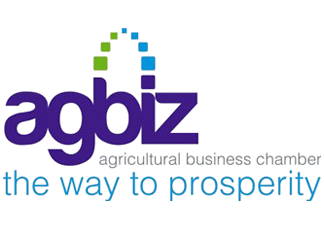Estimated reading time: 3 minutes
With disinflation and steady growth currently experienced in the world economy, the likelihood of a hard landing for the world economy has receded, and risks to global growth are broadly balanced. On the upside, faster disinflation could lead to further easing of financial conditions. However, geographical tension remains high and could develop into a black swan.
There are signs that the deflation situation (-0,2% headline inflation) in China is deepening and now spreading to services as well. Deflation can cause company profits to decrease, resulting in lay-offs and a contraction of money supply and credit as consumers hoard cash. Deflation can move a recession into depression and the current slowdown in the Chinese economy could massively affect the demand for a wide range of products, including agricultural products.
At this point, international dairy product prices are lifting with the Global Dairy Trade Index up 25% from August 2023 to February 2024.
In South Africa, the leading indicator of economic activity, as published by the South African Reserve Bank, is declining and so is the co-incidence indicator. Furthermore, if it declines in the same time frame in which the leading indicator declined, 2024 will mostly experience reduced economic activity.
Unprocessed milk production during 2023 in South Africa remains stagnant on the back of an economy grappling with a wide range of structural challenges and ideological judgement errors (see Table 1).

Dairy exports are growing and reaching new markets, while dairy imports are declining.
In South Africa dairy demand as per the quarterly report from NielsenIQ is experiencing a noteworthy drop in volumes sold of the most important dairy products as monitored by NielsenIQ on the back of high increases in retail sales prices. Some products increased by more than double the inflation rate and at this pace, consumer resistance is highly probable.
The marketing margin as calculated as the differential between the price of one litre of milk in a two-litre plastic container and the average farmgate price is at a new record level, leaving ample space for moderate price increases at the farmgate in 2024 without putting pressure on the retail price.
A market economy depends on available information evenly distributed between role-players that enable the ‘invisible hand’ to optimally distribute production factors. The better the information, the more optimally the ‘invisible hand’ functions. The Milk Producers’ Organisation (MPO) Economic Desk aims to provide market signals and dairy market trends to the industry, organised agriculture and policymakers, to enhance the functioning of the value chain.
The Economic Desk produces several reports focussing on supply and demand variables and dynamics, both within an international and domestic ambit. These reports embody the Industry Information Project of the MPO. The desk follows an approach where the market analysis is objective with a strong scientific foundation.
The outputs and deliberations of the desk should assist role-players in the value chain to better prepare for market developments and empower role players to engage at a higher level. While the MPO cannot and will not try to predict the future in any detail, the possible general impact of specific changes will be discussed in this document.
This information should not be regarded as financial advice.
While this report is compiled from sources that are deemed to be reliable, the MPO cannot take responsibility for any decisions based on the information in this report. – Bertus van Heerden, Milk Producers’ Organisation






